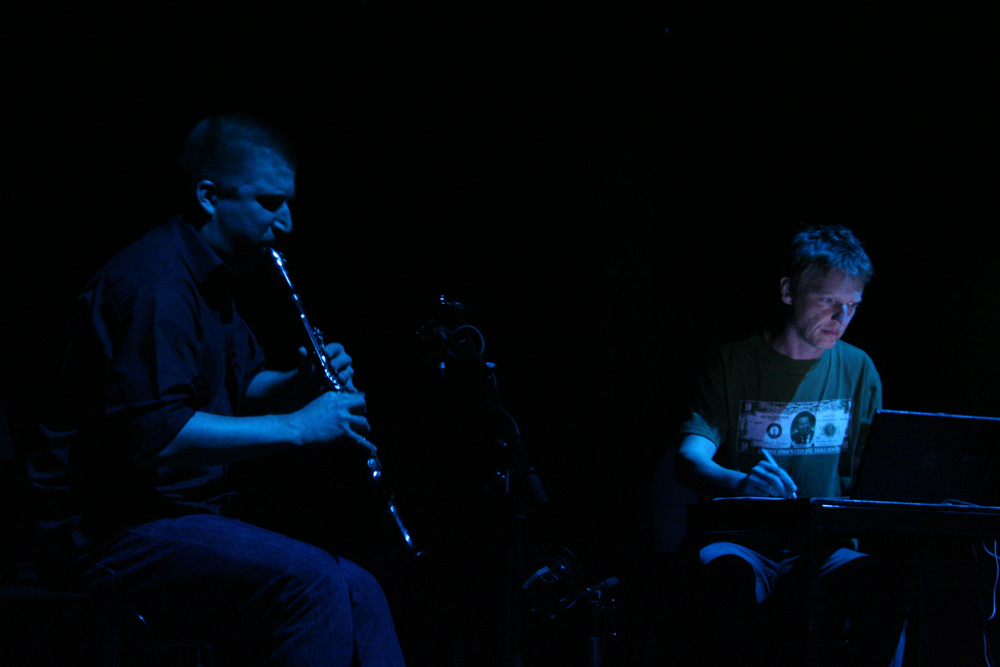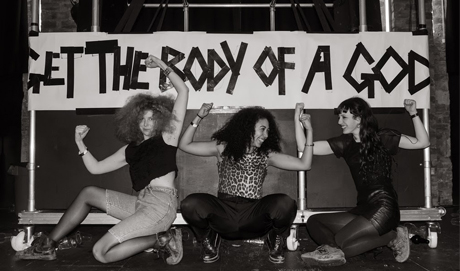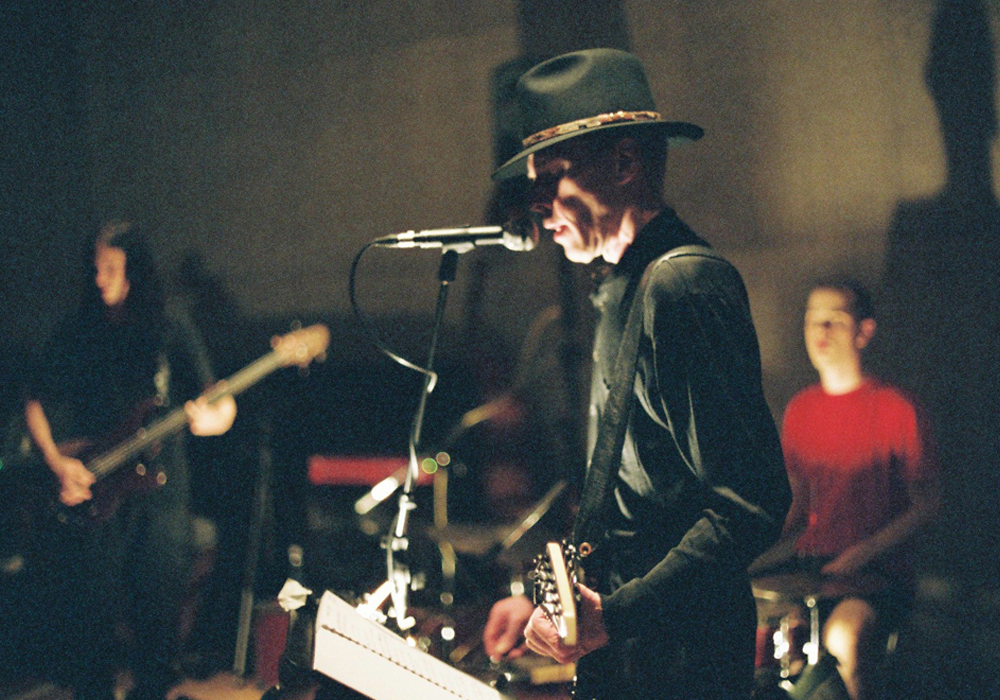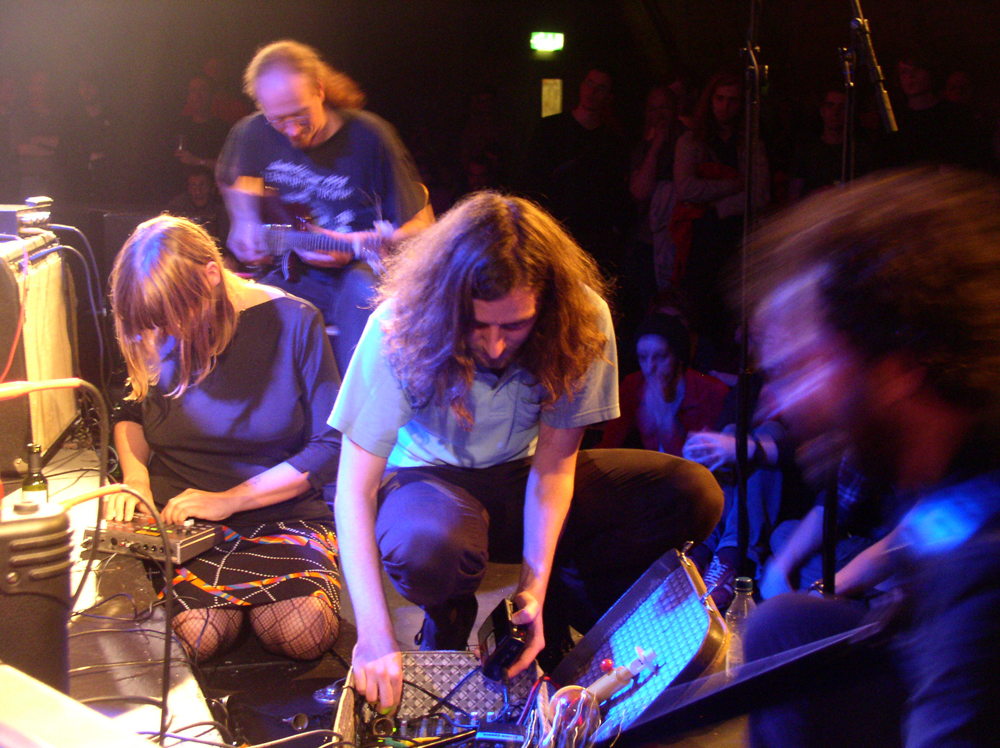
Ueinzz Context
Ueinzz
An open conversation around the history and practices of the Ueinzz Theatre Company – a radical Brazilian schizoscenic theatre company of carers, so-called psychotic patients and philosophers.
Arika have been creating events since 2001. The Archive is space to share the documentation of our work, over 600 events from the past 20 years. Browse the archive by event, artists and collections, explore using theme pairs, or use the index for a comprehensive overview.

An open conversation around the history and practices of the Ueinzz Theatre Company – a radical Brazilian schizoscenic theatre company of carers, so-called psychotic patients and philosophers.

Los Glissandinos work with clarinet and sine tones beating and thrumming in your middle ear, all beautifully paced and serene, but with just enough steely menace broiling under the surface to keep you on edge.

What might Carter and Parker’s collaboration tell us about our own performances of responsibility and liberty, whether individual, social or musical?

Using violin and cello the duo map out a twilight sonic world that seems to tread the faultlines between improvisation and composition.

A celebration of our overabundant social entanglement and complicity, that remind us of how we can see ourselves, stripped of powers’ attempts to grasp us.

Can we use sound, repetition and difference to personally and collectively engage with space, time and labour?

A movement-based workshop on Krump and the politics of how we teach, learn and listen with our bodies. Move with us!

Real-time video feedback loops submerged in laminal sheets of sound soaked in gauzy timbral detail and multi-valenced, buzzing overtones.

Elizabeth’s writing pulls apart toxic settler colonialism and the worldview used to justify it; working towards an alternative distribution of powers, so that ways of being otherwise can endure.

Performances at Anthology Film Archives by by Loren Mazzacane Connors, Alan Licht & Jandek.

A life force of ecstatic clarity capable of loquacious bursts of affirmation.
Low-end drone guitarage army since 1997: nobody has done more on this occasion by a gaggle of sludge-lovers from the Scottish underground.